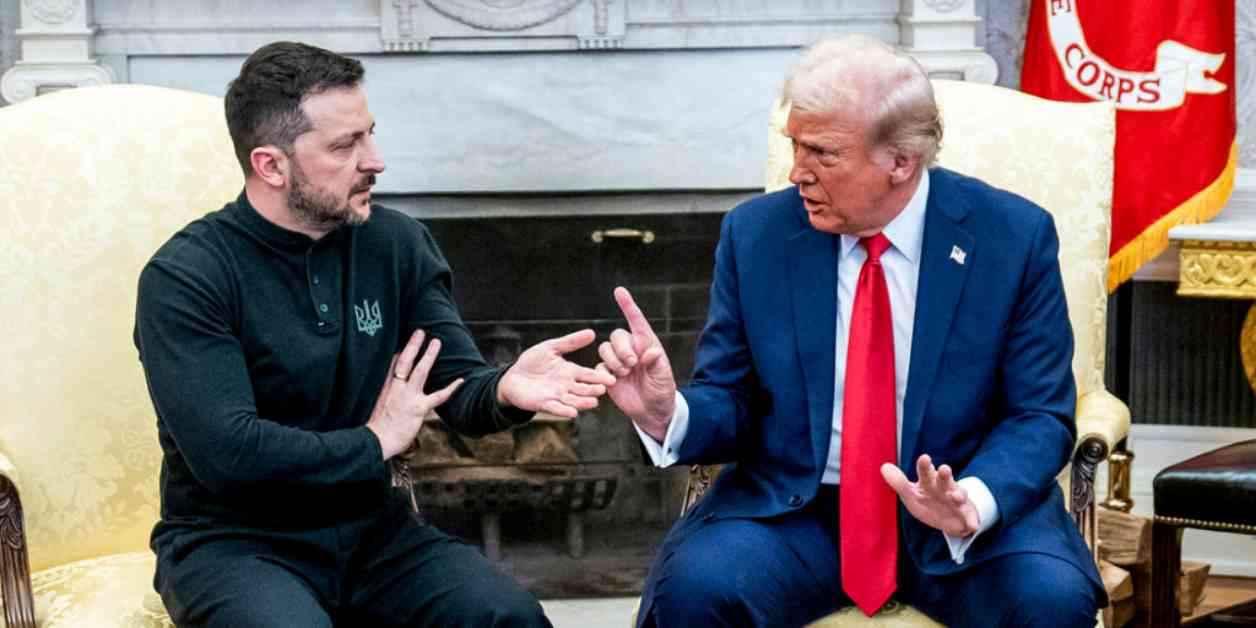Amidst the political tumult that has defined Donald Trump’s presidency, a unique form of opposition has emerged. While Congressional Republicans remain loyal to the former president, Democrats are grappling with how best to challenge his authority. Unlike the traditional model of a president surrounded by a diverse team of advisors, Trump’s inner circle is composed of devoted followers rather than dissenting voices.
As Trump continues to push forward with his agenda, the most significant resistance he faces comes from unexpected quarters—foreign leaders and American judges. These two disparate groups have taken a stand against Trump’s policies, citing violations of the law and a disruption of the established order. Their actions pose a direct challenge to Trump’s authority, inviting potential backlash from a leader known for his quick temper and aversion to criticism.
One such instance of this pushback occurred when Ukrainian President, Volodymyr Zelenskyy, clashed with Trump over peace talks with Russia. In response, Trump’s administration officials instructed Zelenskyy to leave the White House premises and subsequently halted arms shipments to Ukraine. This display of power dynamics highlights the high-stakes interactions that can unfold between global leaders and the U.S. President.
In a striking move, Elon Musk, a prominent figure in Trump’s circle, publicly called for the impeachment of judges who obstructed Trump’s policies. This aggressive stance reflects the broader tension between the administration and the judiciary, raising concerns about the safety and security of those involved. Doug Jones, a former U.S. senator and attorney, emphasized the risks associated with undermining the authority of federal judges, underscoring the potential consequences of such actions.
Despite the mounting pressure from both foreign leaders and the judiciary, the Trump administration remains undeterred in its quest to reshape global dynamics. Federal judges, with their lifetime appointments, serve as a critical check on the president’s power, while world leaders navigate the delicate balance between diplomacy and defiance in their interactions with Trump. The ongoing struggle between these factions underscores the complexity of contemporary politics and the enduring impact of leadership decisions on a global scale.
Challenges from the Bench: Courts as the Last Stand
Federal judges have emerged as a formidable force in challenging Trump’s authority, citing constitutional limits on presidential power. By blocking various initiatives and executive orders, these judges have signaled a staunch defense of the rule of law, even in the face of intense pressure from the administration. U.S. District Judge Beryl Howell’s pointed remarks on the president’s misconceptions of executive authority highlight the judiciary’s commitment to upholding democratic principles. Additionally, Judge William Alsup’s critique of mass terminations within federal agencies underscores the chaos that can ensue when presidential power goes unchecked.
Global Diplomacy: Leaders Take a Stand
From Canada to France, world leaders have publicly rebuked Trump for his controversial statements and policy decisions. Prime Minister Justin Trudeau’s blunt criticism of U.S. tariffs and Prime Minister Keir Starmer’s correction of Trump’s misleading claims demonstrate a shift in diplomatic norms. These leaders, unafraid to challenge Trump’s assertions, have signaled a growing discontent with the administration’s approach to international relations. The visual aids and symbolic gestures employed by leaders like Japanese Prime Minister Shigeru Ishiba highlight the strategic preparations undertaken before engaging with the U.S. President, showcasing a blend of diplomacy and assertiveness on the global stage.
As the political landscape continues to evolve, the dynamics between Trump, his opponents, and the global community remain in flux. The delicate dance of power and resistance plays out on a world stage, shaping the course of international relations and domestic policy. In the midst of this uncertainty, the enduring question remains: who will emerge victorious in the battle for influence and authority in a rapidly changing world?


